Calculate How Many Solar Panels You Need?
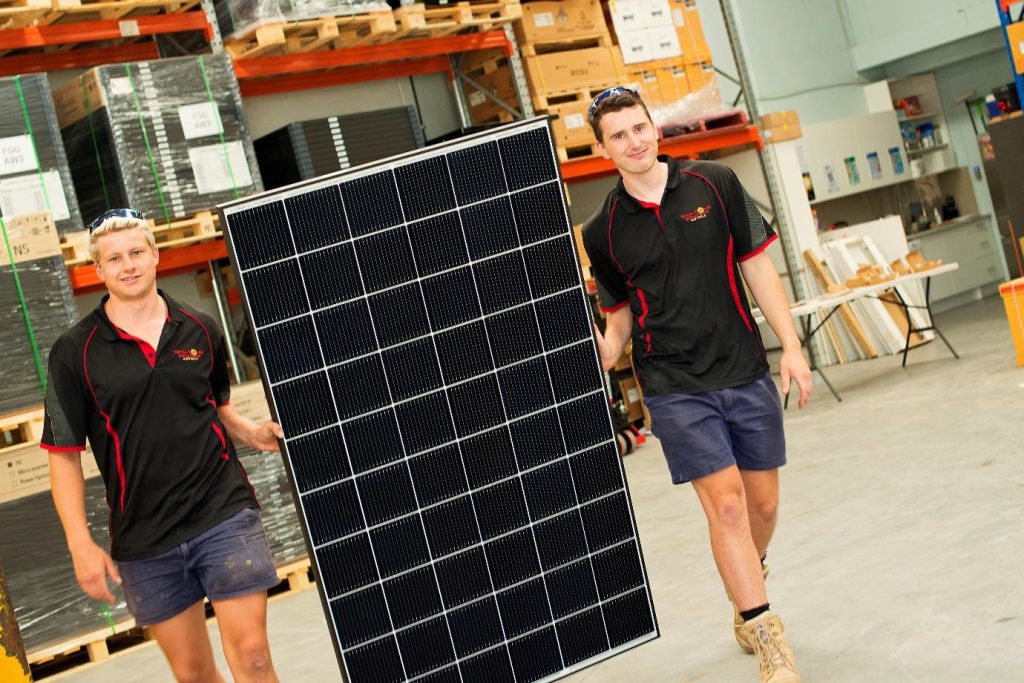
The demand for solar energy has tremendously surged in recent years. Thanks to several solar equipment manufacturing companies, today, being completely dependent on solar power has become possible. However, most people do not understand how to shop for solar panels for homes.
First, you need to calculate the solar requirements for your home and then decide on the number of solar panels you need to buy. That is why in this blog, we will comprehensively explain how to calculate the solar requirements for your home and also guide you on the buying parameters for solar panels Melbourne. Let us begin!
Calculation Recommendations for Purchasing Solar Panels Melbourne
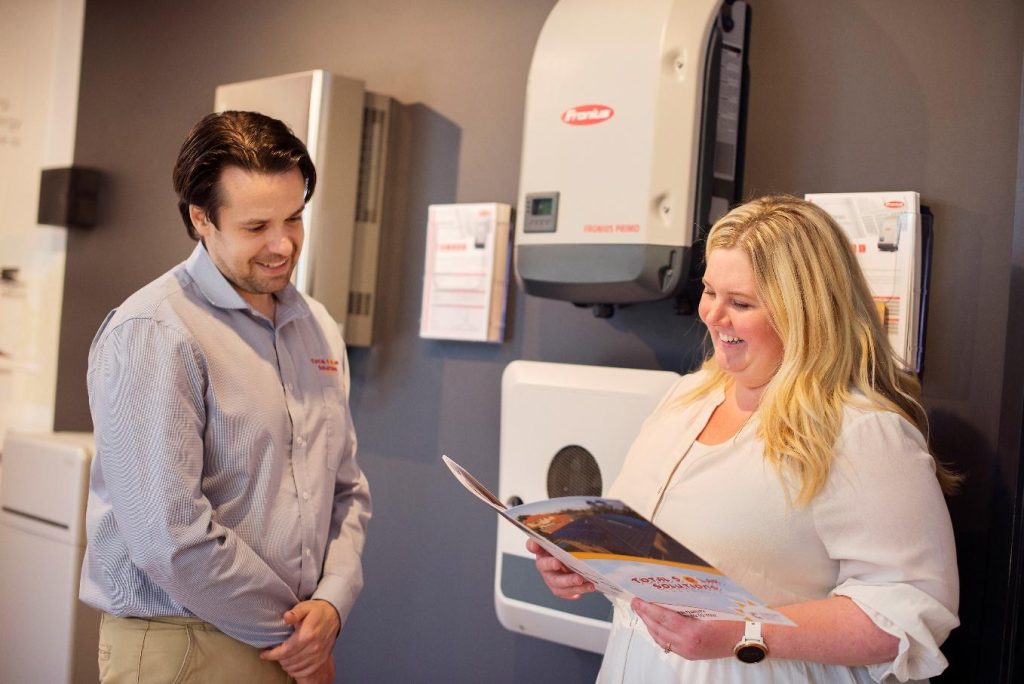
The following are some of the parameters that will help you decide on solar requirements for your home:
1. Annual Electricity Usage
The foremost thing that you should check is your average monthly electricity bill. Take out the average of the last few months of your electricity bill and divide the average by 30. It will help you determine how much money and electricity you spend on your house daily. This number will help you figure out the needed solar system for your home.
2. Average Saving Expectations
The reason the majority of people choose solar power for their homes is because of cost-efficiency. You, too, might have some expectations on how much you can save with commercial solar panels. So have a number of your expected savings and accordingly find a solar panel that can cater to that number.
3. The Area Where You Reside
It is known that solar systems rely on the amount of sunlight they receive throughout the day. Hence, the location of your home is an essential factor that can help decide which residential solar panels to buy.
If your house receives a surplus amount of sunlight, you can install less powered residential solar panels and still maintain good efficiency. Conversely, if your home has a limited amount of sunlight, it is better to go for a high-powered solar panel that can match your house’s needs.
4. The Number of Solar Panels to Be Installed
Solar panels are generally manufactured with an output range of 400W to 430W. For a required 3kW solar system, you need to install at least 12 solar panels. Here is the formula to calculate the number of solar panels required for a 330W solar system: 8 kW / 400* W X 1000 = 20 (the number of solar panels required).
5. Solar Panel Wattage & Production Ratio
Solar panel wattage refers to the electricity output a specific solar panel can generate under ideal conditions. The majority of solar panels for homes have a wattage range between 370 – 430+ W. Hence, it is ideal to choose a solar panel that comes between this range.
Another crucial factor to keep in mind is the production ratio of your solar panel. It can be understood as estimated energy output over time to the actual system size. The production ratio varies by the amount of sunlight the solar panels receive. On average, the production ratio must be between 1.3 and 1.6.
What Size of Solar System is the Best Fit for Efficient Consumption?
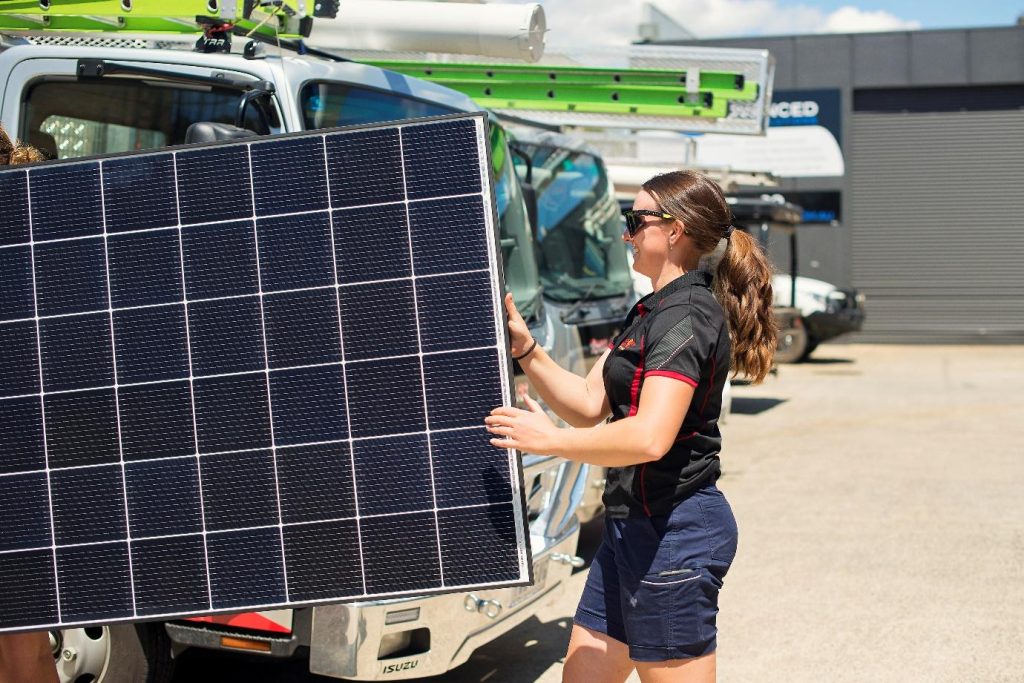
To find the right size of the solar system for your home, you need to analyse the following factors
Daily Energy Consumption
As discussed above in the blog, finding out your daily energy needs is the best way to determine which and what solar panels will be suitable for your home. Just gather the data for your energy spending in the last year from your electricity bill and find the average for one day. This number along with a solar expert’s help, will enable you to decide which and how many solar panels to buy.
Total Sunshine Hours
The amount of sunshine you receive in summers and winters is different. Apart from that, different Australian cities have different exposure to sunlight. Perth gets the highest exposure to light in Australia, followed by Adelaide. Melbourne is considered to get the least amount of sunlight.
Therefore, people living in Melbourne might require a larger solar system to cater to their needs. Knowing how much sunlight your house averagely receives can decide the number of solar panels you require.
Your Energy Goals
Identifying your energy goals is imperative before you find your search for solar panels Melbourne. You need to decide whether you need a solar system just to cover the daytime energy needs or want a full-fledged solar system to cover all the energy needs of your house.
In case you wish to eliminate the current electricity system and go for a complete solar system, then you might need a bigger system with installed batteries. It will help cater to your needs and provide you with energy at all times.
Find Help with Expert Consultation Services – Total Solar Solutions
The best way to determine your solar energy needs and a suitable solar system for those requirements is by getting the help of a professional. Total Solar Solutions is Australia’s leading solar-based company that offers complete end-to-end solar services for your home. They offer all types of solar equipment along with the needed accessories to install residential solar panels at your home.
They have an expert team that visits your house and analyses your home’s parameters before installing a solar system. They will provide you with the right guidance on the type of solar system required and what its capacity should be. So it is always better to go with the judgment of professionals when investing in solar panels.
How to Generate Maximum Efficiency from Your Solar Panels?
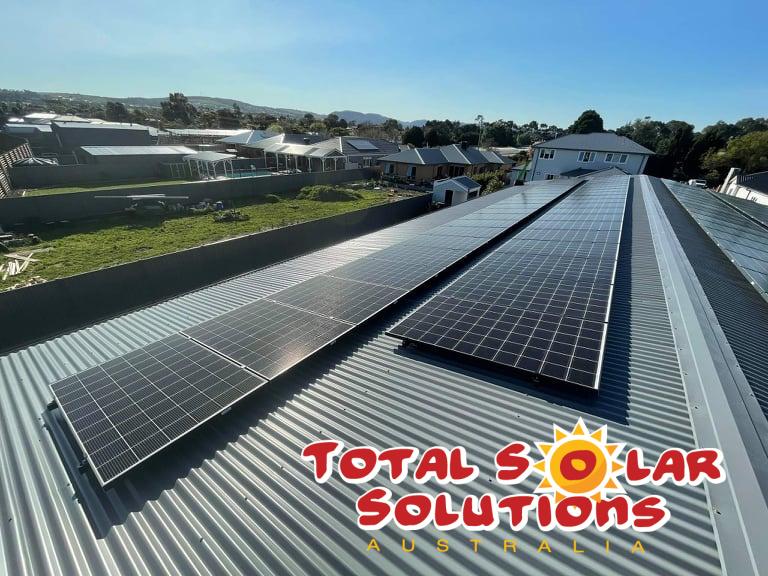
Several factors come into play while deciding the productivity of your residential solar panels. Here are three essential parameters that actually can impact the efficiency of your solar panels:
1. Facing and Inclination of Solar Panels
The sun keeps changing its position during the year. Hence, it is crucial to set your solar panels in a direction that can intake maximum input from the sun. Countries that lie in the southern hemisphere, like Australia, panels facing north to receive the maximum solar energy however depending on your usage profile, a combination of east and west facing panels may be better.
2. Maximum Utilisation of Sunlight
Make sure your solar panels receive consistent sunlight throughout the day. Trees, buildings, poles, etc., often obstruct sunlight, resulting in a shade over the solar panel. Make sure that isn’t the case with you, as it will lead to low solar intake and less power generation.
3. Cleanliness of Solar Panels
Solar panels can accumulate dust layers over a period of time. That is why it is necessary to clean them every 2 years to amplify their efficiency and utilise maximum energy consumption from the sunlight.
Conclusion
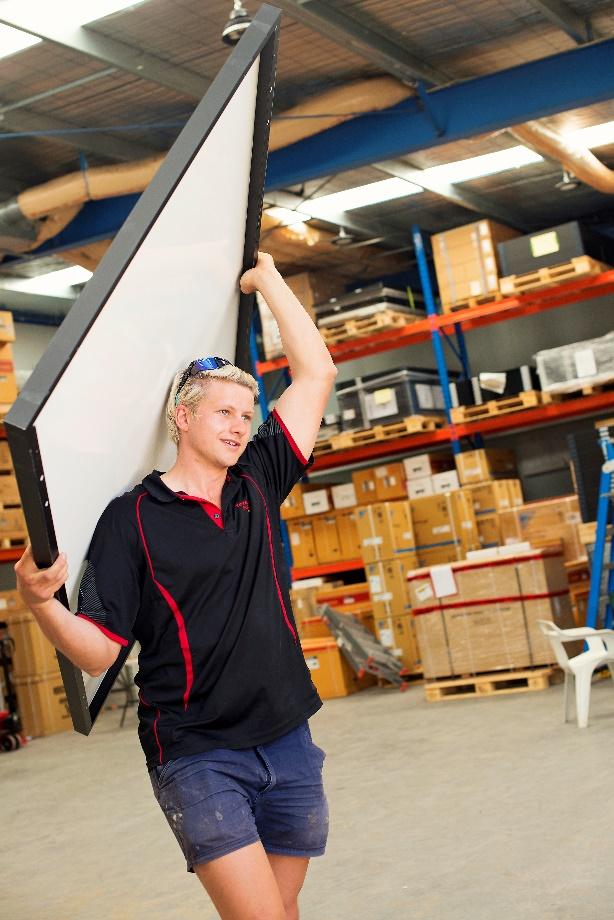
Finding the right residential solar panels for your home can be a challenging and complicated task. That is why it is advised to take the help of a professional who can guide you in the right direction and help you make the right solar decision. Total Solar Solutions have a team of experts that can help you with all solar-related queries. Get in touch with our team and find the best solar solution for yourself.

